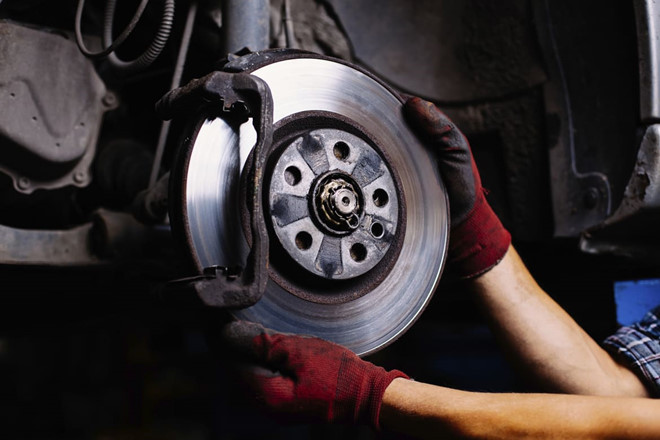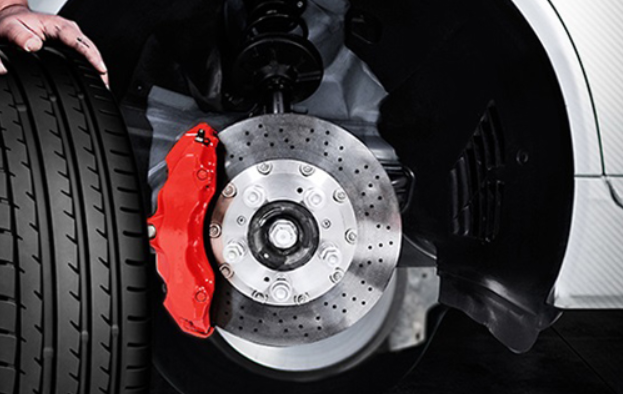Diagnosing squealing brakes
The most common problem with a braking system is worn and vibrating brake pads. If the brake pads are worn, they will make a squealing noise and if they are too worn, the brakes will make a grinding noise due to the impact between the two metal plates.
Usually, any unpleasant sound from the car will make you think of damage. However, such evidence is only certain when it is continuous and persistent. So, when you start to hear some noise from the brake system, you should pay attention so as not to regret your negligence.
 |
The brake system operates on the following principle: Hydraulic pressure is generated when a force is applied to the brake. This force is transmitted to the brake pads (drum brakes) or calipers (disc brakes), pushing the brake pads into contact with the disc and resisting the rotation of the wheel. The contact between the friction material on the brake pads and the disc will be converted into thermodynamic energy and slow down the vehicle.
The most common problem is brake pad wear, which is a simple problem because you can just replace it with a new one and it is not very expensive. However, if the wear occurs on the brake disc, things are more difficult. The brake disc wears due to contact with the previously worn pads and this phenomenon is often accompanied by a grinding noise. The noise comes from the metal on the pads (which have lost their friction material) hitting the brake disc. Technicians usually treat this by grinding the disc to remove the scratches.
 |
To avoid the effects of continuous wear between the devices, you should check the thickness of the friction material on the brake disc. Next, look for oil or grease on the brake pads, warped discs, broken wires. Wet brake pads or oil-stained pistons are also bad signs. If there is rust or corrosion on the brake parts, the piston may be stuck. In addition, uneven brake pads come from one of the pistons being stuck, pushing the brake pads with uneven force, causing different contact times with the disc at each position.
If the squealing noise only occurs when the brake disc is hot, it means the brake is working properly. If the squealing noise occurs frequently when the brake pedal is first pressed and continues throughout the entire period, it means the brake pads are moving and vibrating with the disc. Adjusting the connection between the pads and the shock absorber can fix this phenomenon. Vibration damping pads are made of fiber material and are attached to the back of the brake pads. There are spring rings in between them. In theory, this spring ring and the pads will act as a vibration damping pad and create a gap large enough to reduce or completely eliminate the vibration.
Another solution to stop brake pad squeal is to apply an anti-squeal compound, which can be in granular or liquid form. This is a heat-resistant polymer material that goes behind the pads to act as a cushion. You need to make sure that you only apply this to the parts that come into contact with the piston.
Another option to reduce vibration is to use thin, high temperature resistant pads and apply anti-squeal compound to the designated areas. This solution is not as effective but it is easier to do than changing the brake pads. Unless you are in a hurry or want a quick fix, use the third method, otherwise stick with the first two.

